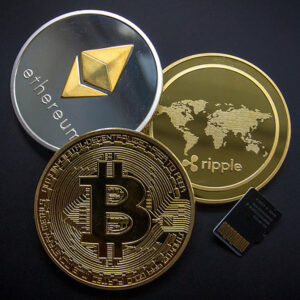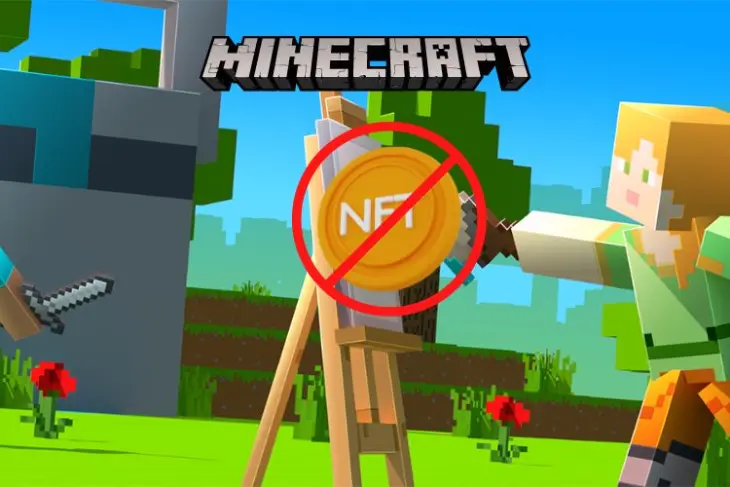Blockchains and Bitcoin: the economic frontier

How long before most companies ask if you want to pay for your order in Bitcoin? Want to use smart contracts to manage your company’s transactions with suppliers and customers? Will “blockchain technology” become a sought-after CV skill?
It’s questions like these that interest Business Management Professor Nir Kshetri at UNC Greensboro’s Bryan School of Business and Economics. He has had his finger on the pulse of new technologies that affect everything from wages to e-commerce to cyber security.
Most recently, he promotes research on cryptocurrency and the Metaverse, a growing digital environment where people can interact, trade and work through virtual reality, augmented reality or game engines. Both of these tools may one day become a regular part of the business.
“Students need to learn about this,” says Kshetri. “They might work in the Metaverse. They might collaborate in the Metaverse or launch a product in the Metaverse. They need to understand how these tools work. They need to be aware of the scams that exist.”
Who buys crypto?

“In the US, the latest survey showed that 16 percent of the US population owns some form of crypto,” explains Kshetri. – It may be more than that now.
Cryptocurrency has existed since the invention of Bitcoin in 2009. There are now around 20 thousand types of digital currency in circulation.
With it come news reports of speculative booms and busts, early investors seemingly becoming overnight millionaires, social media influencers promoting NFTs, and scandals like the fall of crypto exchange FTX. The US government still views the ventures with scepticism. The risk of fraud remains high.
“Crypto defuses less quickly than other technologies,” Kshetri said. “It’s a very complicated technology for people to understand.”
The majority of mainstream cryptocurrencies, he says, are also not backed by any fiat currency or physical asset. “They’re just decentralized ways of paying.”
Since their value is determined by speculative interest, his advice to anyone curious about personal investment in cryptocurrency now is to keep the high risk in mind. “If you are not prepared to lose everything, you should not invest.”
Financial lifelines

Internationally, cryptocurrency has created a new financial platform for people who have never had one electronic payment method. In countries where fiat currency is hampered by economic upheaval or rapid inflation, it can keep a family alive.
“In many developing countries, only ten percent of people have a bank account,” says Kshetri. “Access to financial services is one of the most important tools that empower people.”
Kshetri’s latest research focuses on cryptocurrency in developing countries and economically unstable countries such as Venezuela, where the bolivar’s inflation rate is 65,000 percent. Venezuelans living outside the country can send money home as cryptocurrency without paying high exchange fees.
“There is a new transfer agency focused on Latin America that can convert money into the bolivar,” says Kshetri. “The transfer fee is less than one percent.”
He also observed how people around the world supported their families during the COVID-19 pandemic by playing online games through Metaverse. “A lot of people were locked out and couldn’t work,” he says. “The only way to make a living, in Venezuela, in the Philippines, Brazil, Ghana, was to go online and play games using non-fungible tokens or NFTs.”
At one point, 2.5 million daily active users were playing just one of these Metaverse games. The NFT value has since fallen by around 90 percent. But at the time, says Kshetri, “they were lifelines for many of those who played.”
What do companies like about blockchains?
Cryptocurrencies use “blockchains” to record purchases. A blockchain acts as a ledger, tracking purchases and exchanges of goods. Each interaction is recorded in a digital “block” of data. The records are maintained by a peer-to-peer network of computers around the world.

Should something happen to the company’s servers, or a bad actor tries to sabotage the records, the other nodes in the network should cross-reference each other and account for an incorrect or missing record.
The possibilities of blockchains go beyond currency. They can be used to catalog inventory. They can cut out middlemen between buyer and seller and thus reduce transfer fees. They provide a demonstrable record for handling disputes.
“One application is called a ‘smart contract,'” says Kshetri. “The computer code enforces the contract. Say you are a supplier to my company. After someone confirms that the shipment arrived, the smart contract automatically transfers the cryptocurrency from my account to your account without some intervention from people.”
The future of digital commerce
Cryptocurrency’s future will probably be determined by how stable it becomes and what kind of regulations come into play. Authorities cannot easily track how cryptocurrency is used, and whether it is used for criminal or terrorist purposes. And regulatory setting must be weighed against the individual’s rights.
“If you have your hundred dollar fiat currency right now, nobody knows how to spend it,” says Kshetri. “Digital currency must guarantee some people a level of privacy. It must also guarantee the government’s ability to monitor that it does not reach adversaries.”
No matter how cryptocurrency is implemented, Kshetri will be there to see it evolve so that students, investors and business owners tap into its potential.
“Blockchain is a good technology. Blockchain combined with cryptocurrency has many uses. They can be used to solve many problems in the world.”
Story by Janet Imrick, University Communications
Photograph by Mike DickensBryan School of Business and Economics; and Jiyoung Park, University Communications
Graphics by Jaysen Buterin and De’Andre Gilliard, University Communications

Start building your dream career

























